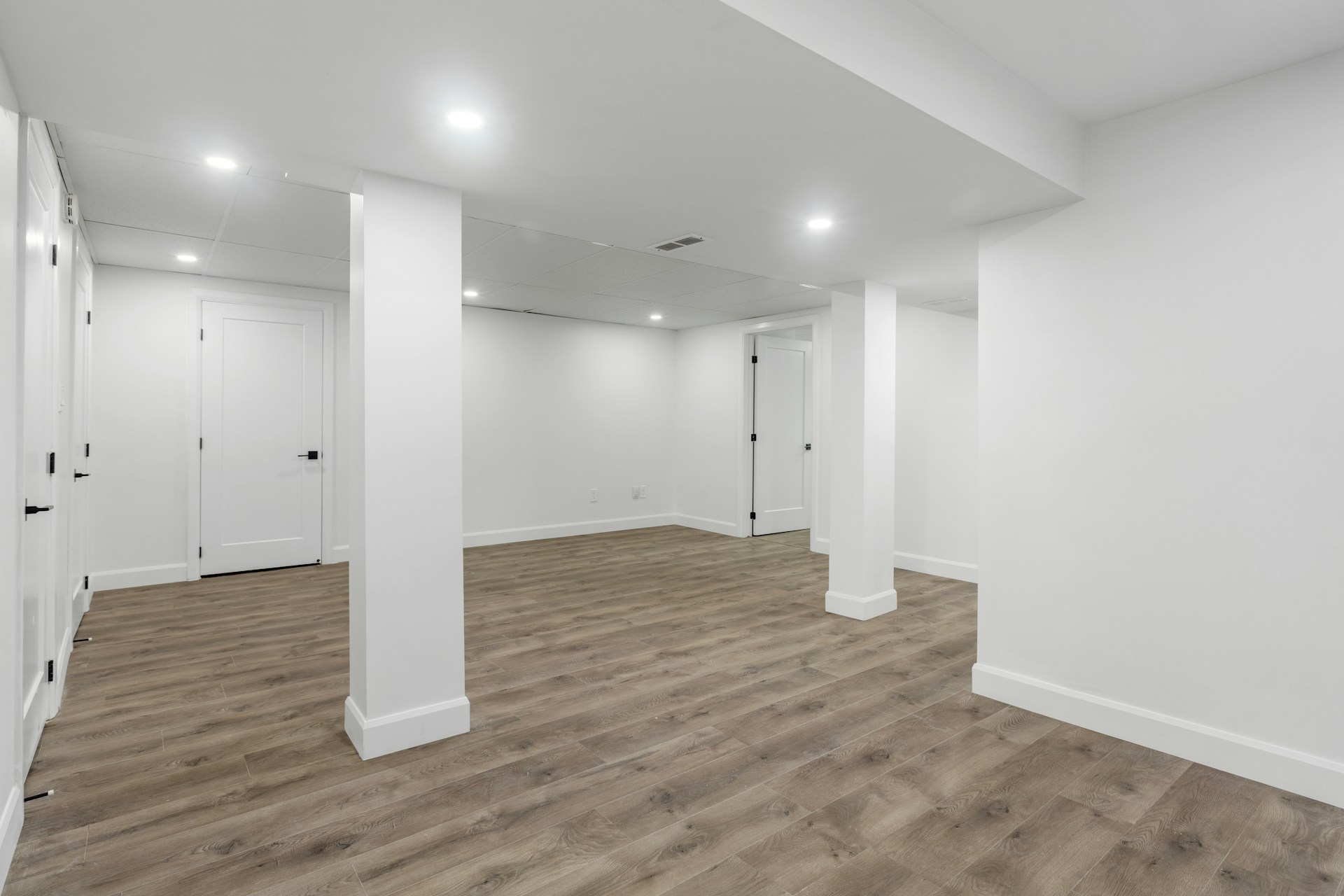5 Essential Tips for Planning Your Basement Renovation
5 Essential Tips for Planning Your Basement Renovation
Planning is the most crucial phase of any basement renovation project. A well-thought-out plan can save you time, money, and headaches down the road. Here are five essential tips to consider before starting your basement finishing project.
1. Assess Your Space Thoroughly
Before you begin any work, conduct a comprehensive assessment of your basement space:
-
Measure everything: Get accurate measurements of the entire area, including ceiling height, window locations, and the position of support columns, plumbing, and HVAC equipment.
-
Check for moisture issues: Look for signs of water damage, dampness, or mold. Address any moisture problems before proceeding with your renovation.
-
Evaluate natural light: Note where the windows are and how much natural light they provide. This will help you plan your lighting design.
Remember that local building codes typically require a minimum ceiling height of 7 feet for finished basement spaces. Make sure your basement meets this requirement before proceeding.
2. Set a Realistic Budget
Establishing a clear budget is critical for any renovation project:
-
Most basement finishing projects cost between $25-50 per square foot, depending on your choices of materials and finishes.
-
Include a buffer of at least 15-20% for unexpected expenses that might arise during the renovation.
-
Consider what features are must-haves versus nice-to-haves. This will help you prioritize spending if you need to make budget cuts.
Breakdown of typical basement renovation costs:
- Framing and drywall: 15-20%
- Flooring: 10-15%
- Electrical work: 10-15%
- Plumbing: 5-10% (more if adding a bathroom)
- HVAC modifications: 5-10%
- Finishing touches (paint, trim, etc.): 10-15%
- Furniture and decor: 15-20%
3. Develop a Thoughtful Floor Plan
Your basement's layout should be designed with both functionality and comfort in mind:
-
Consider the purpose: What do you want to use the space for? A home theater, gym, office, guest bedroom, or playroom will each have different requirements.
-
Plan for traffic flow: Ensure there's enough space for people to move around comfortably, especially in high-traffic areas.
-
Account for existing elements: Work around structural columns, plumbing stacks, and mechanical equipment that can't be moved.
Don't forget to include adequate storage solutions in your plan. Basements are excellent spaces for adding built-in cabinets or closets to help keep your home organized.
4. Choose Appropriate Materials
The right materials can make a significant difference in your basement's durability and comfort:
-
Flooring: Consider moisture-resistant options like luxury vinyl plank, engineered hardwood, or ceramic tile. Avoid solid hardwood, which can warp in the potentially damp environment of a basement.
-
Insulation: Proper insulation is crucial for temperature control and sound dampening. Consider using closed-cell spray foam insulation for exterior walls.
-
Mold-resistant drywall: Standard drywall can be susceptible to mold growth in basements. Opt for mold-resistant drywall instead.
Remember that your basement's temperature and humidity levels may fluctuate more than other parts of your home, so choose materials that can withstand these changes.
5. Understand Permits and Regulations
Before starting any work, make sure you understand the legal requirements:
-
Building permits: Most basement finishing projects require permits. Check with your local building department to determine what permits you need.
-
Egress requirements: Building codes typically require basements to have at least one egress window or door for emergency exits. Ensure your plans include proper egress.
-
Electrical and plumbing codes: These systems must be installed according to local building codes, which often require work to be done by licensed professionals.
Failing to obtain the necessary permits can result in fines, having to redo work, or difficulties when selling your home in the future.
By following these five essential tips, you'll be well on your way to planning a successful basement renovation project. Remember, thorough planning at the beginning leads to smoother execution and better results in the end.
Ready to start your basement renovation journey? Contact Affordable Basements today for a free consultation and estimate!

Before You Finish Your Basement
Download our comprehensive free guide trusted by 1,500+ Denver homeowners. Avoid costly mistakes and plan your transformation like a pro.


